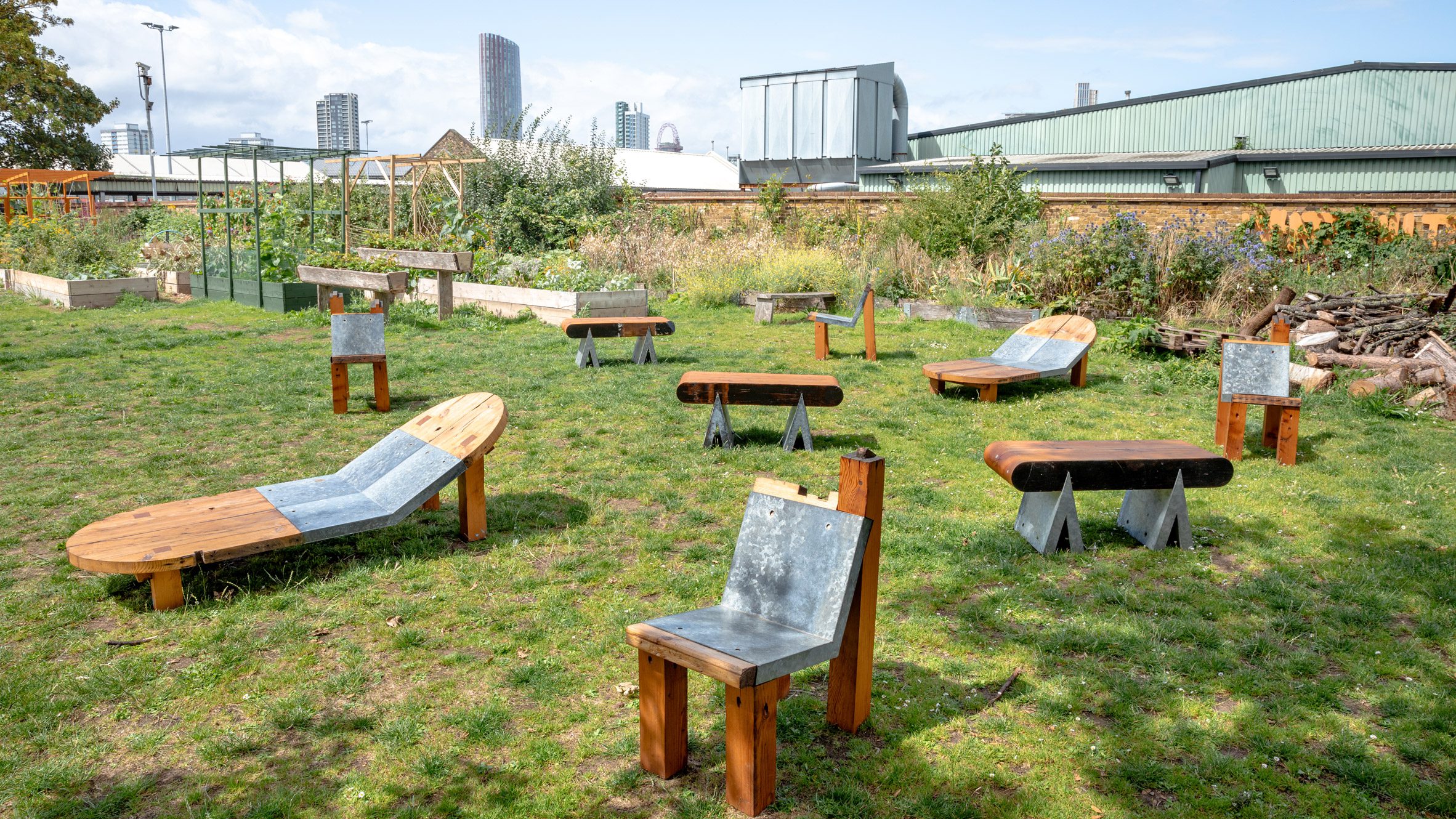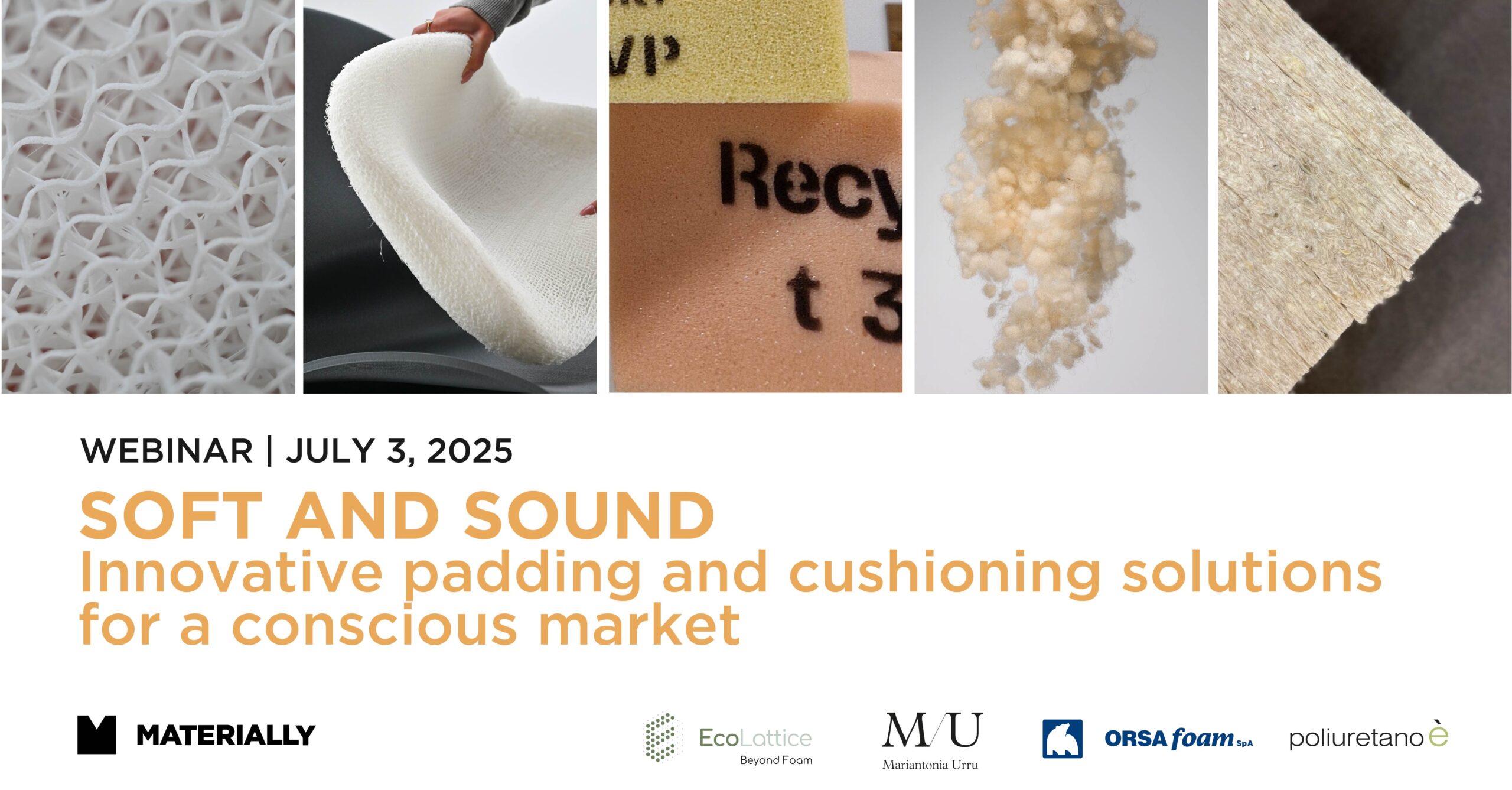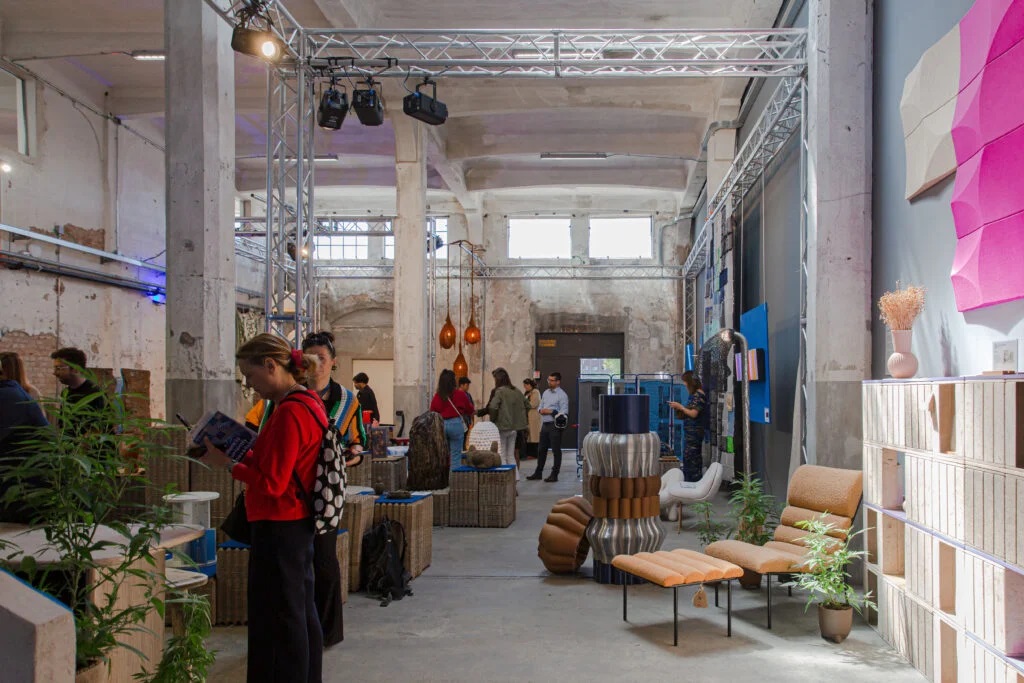
Ethical layouts: circularity and sustainability at Fuorisalone 2024
Is one life enough?, Lampo Milano, Isola Design District
The recently concluded Fuorisalone, whose theme was Matter Nature, indeed provided an opportunity to investigate the relationship between the two words and to promote projects geared toward increasingly sustainable and environmentally friendly solutions.
Designers, companies, schools, and independent brands focused on the progress of the design discipline in the area of sustainability and presented the results of their research and experiments.
A leading role was certainly played by natural materials. Hemp, clay, lime, silk, and cotton were the protagonists both for their aesthetic and material characteristics in line with current trends and for their intrinsic sustainability. Alongside them, new materials developed from waste or the result of experimentation highlighted the many opportunities offered by recycling and creative reuse.
Not only the objects and materials presented, but also the exhibits themselves were developed with an accentuated focus on innovation and environmental responsibility. Indeed, setting up an exhibition space for temporary exhibitions involves the use of very short-lived materials, forcing one to reflect on how to activate an ethical design process under the banner of circularity and thus sustainability.
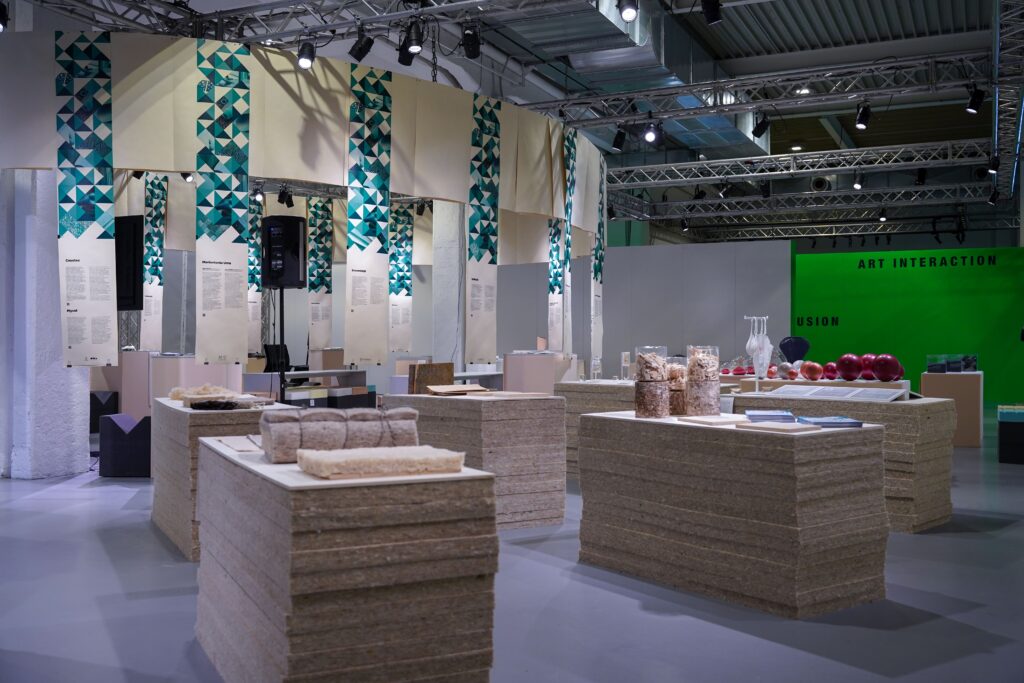
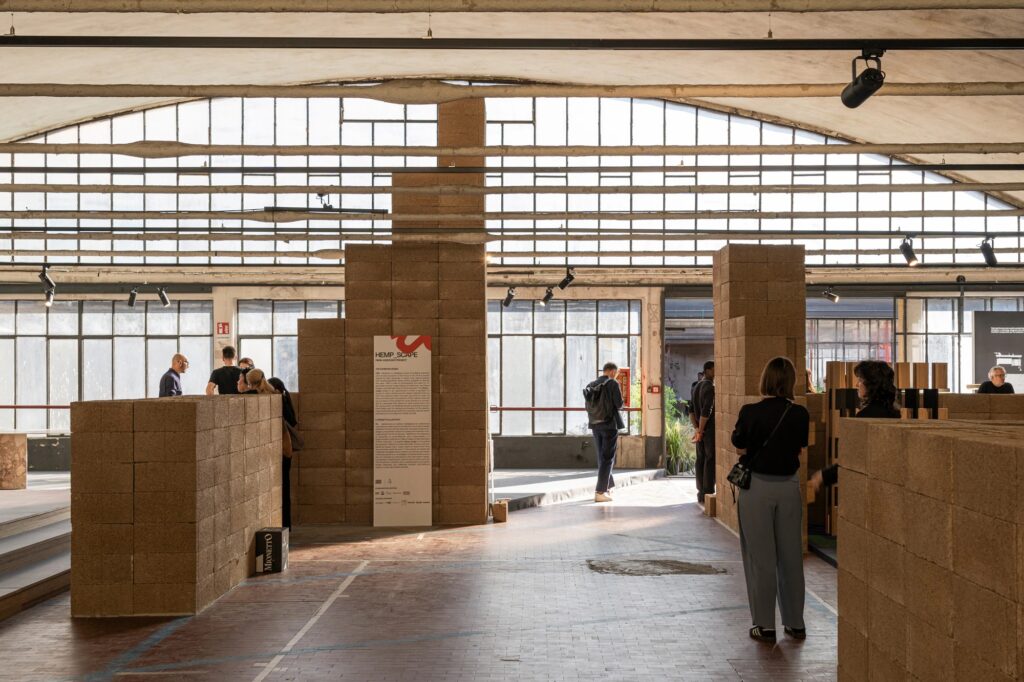
At Design Variations, in the 5VIE district, Park Associati proposed a thoughtful subdivision of exhibition spaces through the use of hemp cement bricks, supplied by the Apulian company Biomat. The exhibition design, named Hemp_Scape, allowed for the creation of fluid and flexible architectural elements with a strong visual impact, and which integrated well with the industrial-looking location chosen by MoscaPartners in the Darsena area. Hemp bricks, identified as the key material for the project, have excellent thermal insulation and sound-absorbing properties. Low-emission manufacturing, then, contributes to a reduced environmental impact, providing a practical and sustainable solution for temporary architecture. Thanks to their dry assembly, which allows them to be built and de-constructed quickly, the entirety of the material used will be put back on the market for reuse, thus reducing the amount of waste at the end of the event.
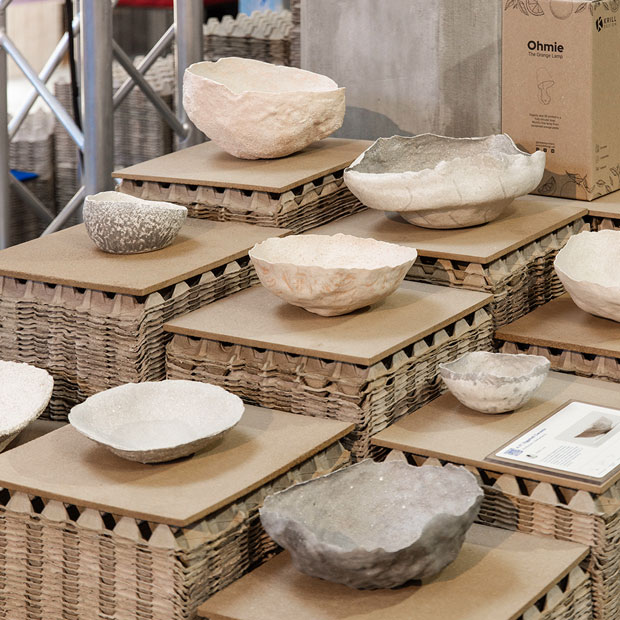
Isola Design District has created in the post-industrial spaces of Lampo Milano, a double exhibition. For the first, called Isola Design Gallery, polycarbonate panels were used, which will be reused at the end of the event; the set-up of the Is one life enough? exhibition, on the other hand, was made sustainable through collaboration with Fantolino, a Turin-based agricultural company that provided recycled egg cartons used as bases for the pedestals, and Kineco, which contributed the mycelium pedestal tops.

